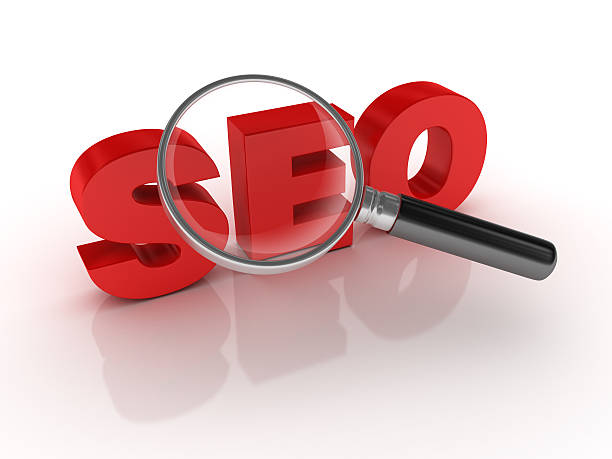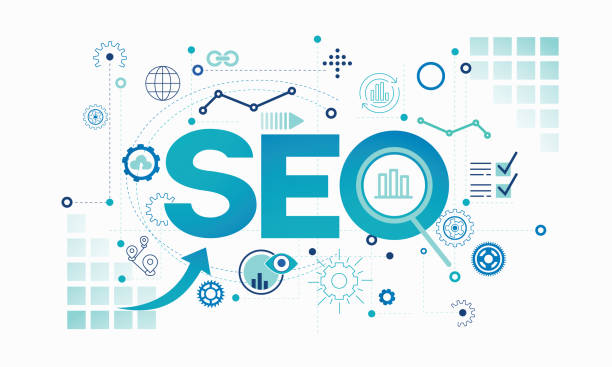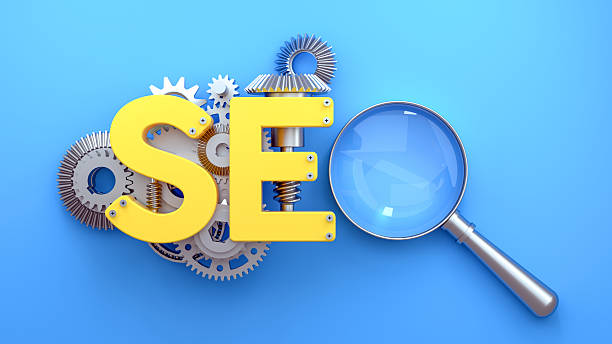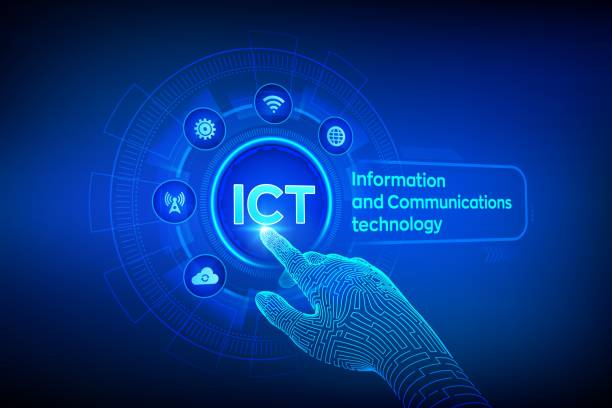What is Off-Page SEO and Why is it Crucial for Your Online Success?

In today’s highly competitive web world, simply having a beautiful website and high-quality content is not enough to be seen.
You need powerful strategies that increase your site’s authority and popularity beyond its borders.
This is where the concept of #Off_Page_SEO or #Off_page_SEO comes in.
Off-Page SEO refers to a set of activities you perform outside your website to improve its ranking in search engine results pages (SERPs).
Its main goal is to strengthen #domain_authority and #link_building and increase #Google_ranking.
Search engines like Google treat incoming links from other websites as “votes of confidence” or “referrals” to your content.
The more numerous and higher quality these links are, the higher your site’s credibility in the eyes of search engines.
This process goes beyond simply getting links and includes all external signals that indicate your brand’s credibility and popularity.
A deep understanding of the nature and importance of Off-Page SEO is a vital step for any online business seeking to improve SEO ranking and attract more organic traffic.
Without a strong Off-Page SEO strategy, even the best content may get lost in the sea of information.
Are you disappointed with your e-commerce site’s low conversion rate? Rasawb transforms your e-commerce site into a powerful tool for attracting and converting customers!
✅ Significant increase in visitor-to-buyer conversion rate
✅ Unparalleled user experience to boost customer satisfaction and loyalty⚡ Get a free consultation from Rasawb!
Main Pillars of Off-Page SEO: Understanding Key Factors

Off-Page SEO is not limited to link building; it encompasses numerous factors that all contribute to improving your website’s credibility profile and visibility.
Among the most important of these factors are backlinks.
Backlinks, or inbound links, are links from other websites to your site.
The quality and quantity of these links significantly impact your SEO ranking.
Search engines view backlinks as votes of confidence from other sites, and the more authoritative and relevant the referring site, the greater the value of that link.
In addition to backlinks, Brand Mentions are also a crucial factor.
These mentions can be linked or unlinked, but Google pays attention to both and considers them a signal of your brand’s popularity and authority.
Another pillar of Off-Page SEO is social media signals.
Although likes, shares, and comments do not directly affect ranking, they can help increase the visibility of your content and, consequently, attract natural backlinks.
Furthermore, Online Reviews, especially for local businesses, play a significant role in local SEO and bolstering public credibility.
Participation in forums and specialized communities related to your industry, as well as Local Citations which include your business name, address, and phone number in online directories, are also considered effective factors in Off-Page SEO.
Analyzing these factors helps you formulate a comprehensive and effective Off-Page SEO strategy.
Types of Backlinks and Their Role in Off-Page SEO Strategy

Backlinks form the core of Off-Page SEO, and understanding their types is essential for developing an effective strategy.
The most important distinction between backlinks is Dofollow and Nofollow backlinks.
Dofollow links allow search engines to pass “authority” or “link juice” from the source site to the destination site and have the most significant impact on ranking.
In contrast, Nofollow links (such as comments in blogs, social media links, or links in advertisements) tell search engines not to follow the link and not to pass authority, but they can still bring traffic to your site and help with brand visibility.
In recent years, Google has also introduced two other attributes: rel=”sponsored” for paid links and rel=”ugc” for User-Generated Content.
| Backlink Type | Description | SEO Impact | Example |
|---|---|---|---|
| Dofollow | Links that pass authority (Link Juice) to the destination site and are highly valuable for SEO. | Very High | Link from a specialized article on an authoritative website |
| Nofollow | Tells search engines not to follow this link and not to pass authority, but still brings traffic. | Low Direct, High Indirect (through traffic and visibility) | Link in blog comments, social media links |
| Sponsored | Links created in exchange for payment or goods and must be marked with rel=”sponsored”. | No Direct Impact (Google ignores it or penalizes if not specified) | Link in a promotional post or advertorial |
| User-Generated Content (UGC) | Links created by users on platforms like forums or comment sections and must be marked with rel=”ugc”. | No Direct Impact | Link in a forum signature or in a site’s comment section |
Dofollow backlinks from relevant and authoritative sites are considered the most valuable type of link for Off-Page SEO.
However, having a natural mix of different link types (Dofollow and Nofollow) appears more authentic and trustworthy to search engines and reflects a healthy Off-Page SEO strategy.
Investing in creating high-quality content that naturally attracts links is the best long-term approach.
Building High-Quality Backlinks: Techniques and Methods

Creating high-quality backlinks is an art and a science that requires patience and the right strategy.
In Off-Page SEO, the goal is to acquire links from authoritative and relevant websites that add to your site’s credibility.
One of the most effective methods is Guest Blogging.
In this method, you write high-quality content for another website in your related field and, in return, receive a link back to your site.
This link should be natural and embedded within the content to have real value.
The key point is that the host website should have high domain authority and suitable traffic.
Another technique is Broken Link Building.
Using SEO tools, you can find websites that have broken links to content related to your business area.
Then, you contact the website administrator, inform them about the broken link, and offer your content as a replacement for that link.
This method is a win-win situation; the website administrator fixes the broken link, and you receive a valuable backlink.
The Skyscraper Technique also involves finding highly popular content, improving and expanding upon it, and then offering your enhanced version to websites that linked to the original content.
Furthermore, creating shareable content, such as infographics, case studies, free tools, or in-depth analytical articles, can naturally attract links.
When your content is valuable, other websites naturally link to it.
Analyzing competitor backlinks is also a powerful strategy in Off-Page SEO.
By examining the backlink profiles of your top competitors, you can discover new link-building opportunities and model their strategies.
Also, using tools like HARO (Help A Reporter Out) allows you to respond to journalists’ requests and, in exchange for providing expert information, receive links from reputable media outlets.
All these methods lead towards natural and valuable link building, which is the foundation of successful Off-Page SEO.
Are you dissatisfied with your e-commerce site’s low sales?
Rasawb is your solution for a professional and high-selling e-commerce website.
✅ Significant increase in sales and revenue
✅ Easy and enjoyable shopping experience for customers
⚡ Get a free consultation from Rasawb now!
Essential Tools and Resources for Optimizing Your Off-Page SEO

For successful Off-Page SEO optimization, access to appropriate tools is crucial.
These tools help you analyze your backlink profile and that of your competitors, identify new link-building opportunities, and measure the overall performance of your Off-Page SEO strategy.
One of the most powerful tools in this area is Ahrefs.
Ahrefs is a comprehensive SEO toolset that allows you to analyze any website’s backlinks, discover competitor keywords, find popular content, and check your site’s SEO health.
Its comprehensive capabilities in backlink analysis and link-building opportunity discovery have made it an invaluable tool in the field of Off-Page SEO.
Another tool that competes with Ahrefs is SEMrush.
SEMrush is also an all-in-one tool that, in addition to backlink analysis, offers extensive capabilities in keyword research, competitor analysis, technical SEO, and brand monitoring.
This tool can help you identify websites that have linked to your competitors, which in itself is an excellent source for finding new link-building opportunities for your Off-Page SEO strategy.
Moz Link Explorer is also a popular tool for backlink analysis that provides metrics like Domain Authority (DA) and Page Authority (PA), helping you evaluate the strength and authority of links and domains.
As one of the pioneers in the SEO field, Moz provides valuable information for improving Off-Page SEO.
In addition to paid tools, Google Search Console is a free and essential resource provided directly by Google.
This tool helps you monitor your site’s performance in search results, view your incoming backlinks, identify crawl errors, and check your site’s indexing status in Google.
By using this tool, you can gain vital insights into how Google interacts with your site and take necessary actions to improve your Off-Page SEO and overall site health.
Other tools like Ubersuggest can also be useful for backlink and keyword analysis.
Beyond Backlinks: Hidden Factors in Off-Page SEO

While backlinks form the backbone of Off-Page SEO, success in this area is not limited to them alone.
Other factors, directly or indirectly affecting your brand’s credibility and visibility, must also be included in your comprehensive Off-Page SEO strategy.
One such factor is Unlinked Brand Mentions.
Although these are not direct links, Google has become increasingly intelligent and can recognize when your brand is discussed on other websites.
Each time your brand name is mentioned in a news article, blog, or forum without a direct link to your site, Google considers it a positive signal of your brand’s popularity and authority.
These mentions can help increase your credibility and, consequently, improve SEO rankings.
The role of social media in Off-Page SEO is often overlooked.
Although social signals (like likes, shares, follows) are not direct ranking factors, they can help increase the visibility of your content and, consequently, attract traffic and natural links.
Popular content on social media has a higher chance of receiving links from websites and bloggers.
Moreover, Online Reviews play a vital role, especially for local businesses.
Positive reviews on sites like Google My Business, Yelp, or TripAdvisor not only lead to increased customer trust but also send strong signals of your business’s credibility and popularity to search engines.
Active participation in specialized forums and communities related to your industry, answering user questions, and providing valuable information, not only establishes you as an expert in your field but can also lead to natural links and increased referral traffic.
All these factors collectively create a strong and comprehensive Off-Page SEO profile that goes beyond just the number of links.
Measuring and Analyzing Success in Off-Page SEO

Measuring and analyzing the performance of your Off-Page SEO strategy is of paramount importance to ensure the effectiveness of your efforts and adjust your approach if necessary.
For this purpose, you should track Key Performance Indicators (KPIs) that indicate the growth of your site’s authority and visibility.
One of the most important metrics is Domain Authority (DA) and Page Authority (PA), provided by Moz, which indicate the predictive power of a website’s ranking in search results.
An increase in these metrics is usually a sign of success in Off-Page SEO.
Furthermore, the number and quality of backlinks and the number of Referring Domains should be continuously monitored.
The goal is to increase natural and high-quality links from diverse and authoritative domains.
Tools like Ahrefs and SEMrush provide detailed information on these metrics, allowing you to track the growth of your backlink profile over time and even analyze your competitors’ backlinks.
Referral Traffic is another important metric.
Traffic coming to your site from links placed on other websites indicates your success in attracting visitors through Off-Page SEO activities.
This traffic can not only impact your ranking but also directly lead to increased sales or conversions.
| Metric | Description | Measurement Tool | Importance in Off-Page SEO |
|---|---|---|---|
| Domain Authority (DA/DR) | Indicates the predictive power of a domain’s ranking in search results. | Moz, Ahrefs | Very High; indicates overall site authority. |
| Number of Backlinks | Total number of incoming links to your site. | Ahrefs, SEMrush, Google Search Console | Important; but quality outweighs quantity. |
| Number of Referring Domains | Number of unique websites that have linked to your site. | Ahrefs, SEMrush, Google Search Console | Very Important; indicates link diversity and spread. |
| Referral Traffic | Visitors who came to your website through links from other sites. | Google Analytics | Important; indicates actual user acquisition and link value. |
| Keyword Ranking | Your site’s position for target keywords in search results. | Ahrefs, SEMrush, Google Search Console | Critical; the ultimate goal of many SEO activities. |
Finally, tracking keyword ranking and overall organic traffic through tools like Google Search Console and Google Analytics provides you with a comprehensive view of the direct and indirect impacts of Off-Page SEO on your site’s overall success.
Regular analysis of these metrics is an integral part of a successful Off-Page SEO strategy.
Common Mistakes in Off-Page SEO and Ways to Avoid Them

In the field of Off-Page SEO, just as there are many opportunities to improve site rankings, there are also common mistakes that can harm your efforts and even lead to Google penalties.
One of the biggest and most dangerous mistakes is buying backlinks.
Google explicitly prohibits the buying and selling of links intended to manipulate rankings.
Google’s algorithms, especially the Penguin algorithm, are specifically designed to identify and penalize sites that use these unnatural methods.
This penalty can lead to a complete loss of Google ranking and a severe drop in traffic.
Another common mistake is Excessive Reciprocal Linking, meaning you link to a site and that site links back to you, merely for link exchange.
While natural and limited link exchange can be beneficial, a clear pattern of extensive link exchange can be considered an artificial attempt to manipulate rankings.
Using low-quality link directories or spam sites is also a major mistake in Off-Page SEO.
Getting links from sites that are topically irrelevant or have high spam scores and low authority not only does not benefit you but can also harm your backlink profile.
Ignoring topical relevance in link building is also a mistake.
A link from a site relevant to your topic is far more valuable than several links from irrelevant sites.
Search engines place significant importance on topical relevance between sites.
Furthermore, unnatural and excessive use of a specific Anchor Text (clickable link text) can be identified as a spam pattern.
Diversity in anchor texts and using more natural and varied phrases indicates to Google that your links are natural and human-generated.
Creating valueless content solely for the purpose of link building is also an inappropriate approach; your content should truly be valuable to users to naturally attract links.
To avoid these mistakes, always focus on White Hat SEO strategies, which emphasize creating real value for users and adhering to Google’s guidelines.
This approach ensures long-term stability and success for your Off-Page SEO strategy.
Research shows that 80% of customers trust companies with professional websites more. Does your current website inspire this trust?
With Rasawb’s corporate website design services, solve the problem of customer distrust and a weak online image forever!
✅ Create a professional image and increase customer trust
✅ Attract more sales leads and grow your business
⚡ Get a free consultation!
Advanced Off-Page SEO Tactics and Future Trends

As search engine algorithms evolve, Off-Page SEO tactics also become more complex and intelligent.
To stay ahead in this competition, you need to pursue more advanced approaches and understand future trends.
One of the most effective current tactics is Digital PR.
Instead of merely requesting links, the goal of Digital PR is to gain media coverage and brand mentions in reputable online publications.
This can include publishing press releases, collaborating with influencers, or creating viral content that naturally attracts high-quality links and mentions.
Links acquired through digital PR campaigns often come from reputable news sites and media outlets, which pass very high authority to your site.
Content Syndication is another advanced method.
This involves publishing your content on other platforms such as Medium, LinkedIn Pulse, or partner news sites.
Although these platforms typically use nofollow links, they lead to increased visibility for your content, attracting new audiences, and consequently increasing the likelihood of natural links.
The Broken Image Link Building technique is also a creative tactic that works similarly to broken link building, but focuses on finding broken images on websites and suggesting replacing them with your own images (which link to your site).
With the advancement of Artificial Intelligence and Semantic Search, Off-Page SEO increasingly emphasizes the concept of E-E-A-T (Experience, Expertise, Authoritativeness, and Trustworthiness).
Google wants to ensure that the information it provides originates from credible and expert sources.
Off-Page SEO activities such as acquiring backlinks from specialized sources, mentioning industry experts’ names, and presence in reputable media all help reinforce these factors.
In the future, the emphasis on online reputation and trust signals from non-linking sources is also expected to increase.
Consequently, a successful Off-Page SEO strategy should include a comprehensive approach that focuses not only on links but also on building a credible and trustworthy online presence.
Conclusion and the Enduring Importance of Off-Page SEO in a Comprehensive SEO Strategy

In conclusion, it can be said that Off-Page SEO is not only one of the most important but also one of the most complex and time-consuming aspects of search engine optimization.
This area means building reputation and authority for your website in the vast world of the internet.
Unlike On-Page SEO, which is entirely under your control, Off-Page SEO requires interaction with other websites and individuals, which makes it challenging yet highly valuable.
High-quality links, brand mentions, and social signals are all like votes of confidence that show search engines your website is a reliable and authoritative source in its field.
Success in Off-Page SEO is a continuous and long-term process.
One cannot expect significant results with a few limited activities.
It requires creating valuable content that naturally attracts links, building relationships with other webmasters and influencers, and closely monitoring the backlink profile and other external signals.
While search algorithms are constantly changing, the importance of authority and trust will always remain constant, and Off-Page SEO directly addresses these concepts.
This area is a vital complement to On-Page SEO, and without it, even the best on-site optimizations cannot realize their full potential.
Websites that perform strongly in their Off-Page SEO strategy not only rank better in search results but also attract more organic traffic and, over time, become authoritative references and recognized brands in their industry.
Therefore, investing time and resources in a strong Off-Page SEO strategy is a necessity for any online business seeking sustainable success and long-term growth.
Frequently Asked Questions
| Question | Answer |
|---|---|
| What is Off-Page SEO? | Off-Page SEO refers to a set of activities and methods performed outside your website to improve its ranking in search engines, such as building backlinks. |
| Why is Off-Page SEO important for a website? | Off-Page SEO indicates to search engines that your website is credible, popular, and trustworthy, which helps increase domain authority and ranking. |
| What is the most important factor in Off-Page SEO? | Backlinks (links from other sites to your site) are the most important factor, especially if they come from reputable sites. |
| What are the characteristics of a quality backlink? | A quality backlink comes from authoritative sites (with high authority), is relevant to your site’s topic, and has appropriate (natural) anchor text. |
| Do social media play a role in Off-Page SEO? | Yes, sharing content on social media can help increase visibility and indirect traffic and send positive social signals to search engines. |
| What is PBN and is it recommended? | PBN (Private Blog Network) is a network of private websites used to build backlinks to the main site. Google considers this method spam, and its use is strictly prohibited and can lead to penalties. |
| How is Natural Link Building done? | By creating valuable and shareable content, building relationships with bloggers and influencers, and attracting media attention. |
| What is Anchor Text in a backlink? | It is the clickable text in which the link is embedded. Using diverse and keyword-relevant anchor texts appears more natural and helps with SEO. |
| What is the connection between Local SEO and Off-Page SEO? | Local SEO includes off-site activities such as listing on Google My Business, local directories, and obtaining online reviews, which help businesses appear in local search results. |
| How can competitor backlinks be checked? | By using tools like Ahrefs, Semrush, or Moz, you can analyze competitors’ backlink profiles and identify new link-building opportunities. |
And other advertising services from Rasawb Advertising Agency:
Smart Advertorials: A new service to increase user engagement through attractive UI design.
Smart Google Ads: A professional solution to improve SEO ranking by focusing on optimizing key pages.
Smart Digital Advertising: A new service to increase website visits through the use of real data.
Smart Sales Automation: A combination of creativity and technology for campaign management through custom programming.
Smart Brand Identity: An effective tool for user engagement with the help of intelligent data analysis.
And over hundreds of other services in the field of internet advertising, advertising consultation, and organizational solutions.
Internet Advertising | Advertising Strategy | Advertorials
Sources
Comprehensive Off-Page SEO Tutorial
SEO Training Articles
Off-Page SEO Techniques
How to Rank in Google
? Are you ready to transform your business in the digital world? Rasawb Afarin, with expertise in comprehensive digital marketing services including corporate website design, paves the way for your growth.
📍 Tehran, Mirdamad Street, next to Bank Markazi, Southern Kazeroon Alley, Ramin Alley No. 6




